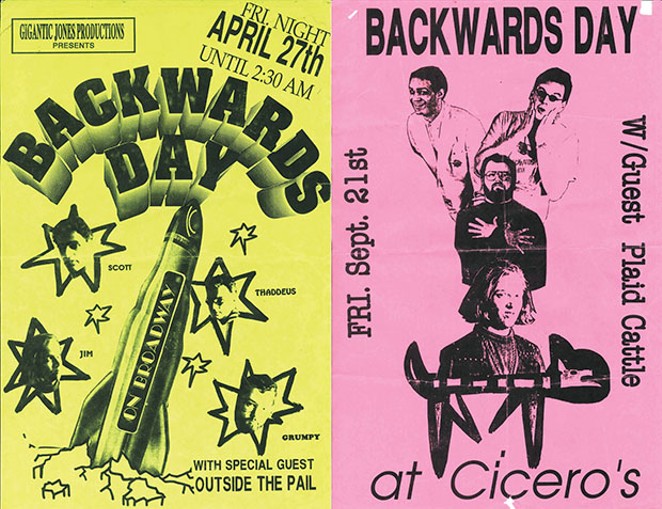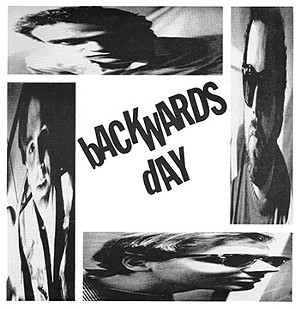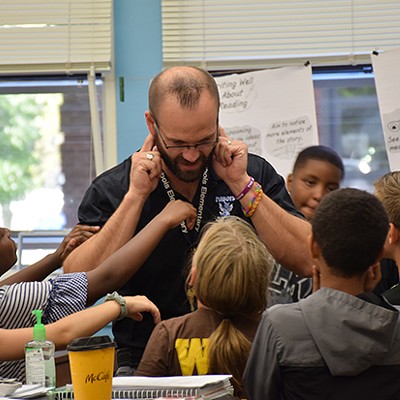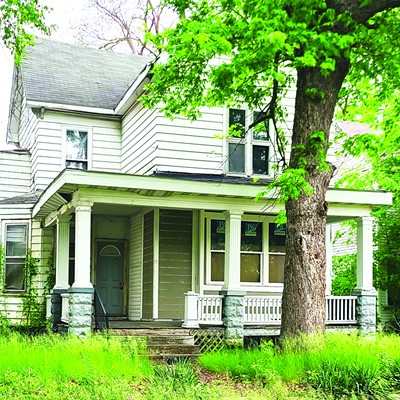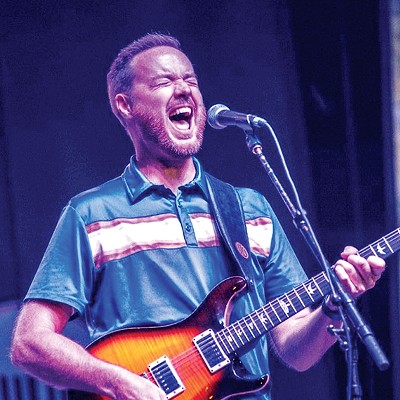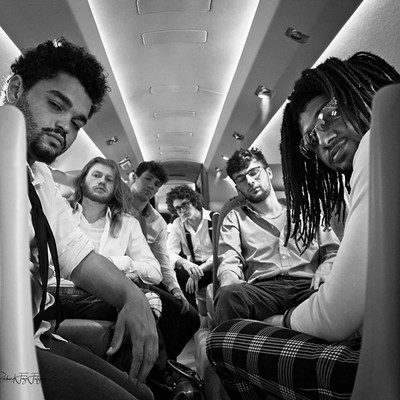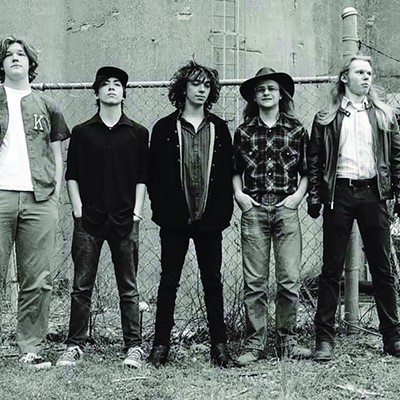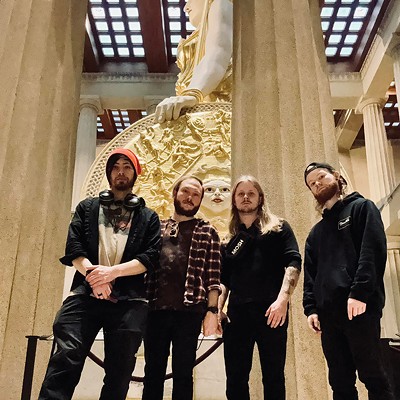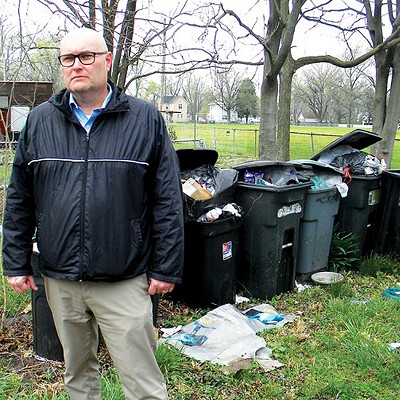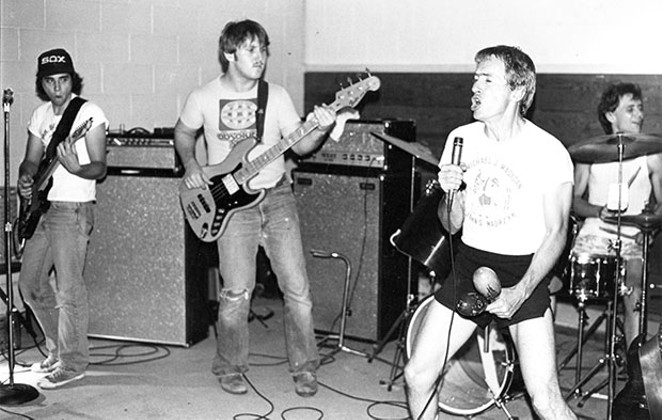
This Saturday, July 1, at the Black Sheep Cafe, four bands spanning nearly 40 years of alternative rock, punk and new wave genres play together on the same bill. Two once-popular area bands, Food & Money from the early 80s and Backwards Day from the early 90s, reunite to join with two currently working bands, Livin’ Thing and Spellbreaker, directly connecting – through music, venues, styles and even family – decades of influences.
Springfield has gone through four periods of what rock music genre critics named “punk/new wave/alternative,” a style created to disturb the status quo of contemporary popular music. Our first era coincided with the appearance of “punk” on the national and international stage, when, in the mid-to-late 1970s, after a period of easy listening hits and progressive rock meanderings, pop music seemed ripe for a change. Local musicians in town reacted to this music revolution by forming bands such as Food & Money, The Strand/Condition 90, Bad Cake, Bux da Hoota, Nervous Soldier, Will To Dance and NIL8, plus many more.
The second coming came nearly a decade later when Backwards Day popped out and revitalized the scene. The ever-popular NIL8 remained, along with the Beyond, Cattle Under Cover, the Spoonbenders and several others.
When the Asylum became a hip, all-age venue in the late 90s, bands such as The Timmys and the Gunga Dins (yes, NIL8 was still around and going strong) took center stage in the third movement.
By the early 2000s, the Asylum was gone and the Black Sheep Cafe began to take shape as the focal point of all things punk and alternative in the Springfield music scene to become our fourth, and current, period.
Skank Skates, a home for punk-loving skateboard kids on South Grand and 11th (the opening of the Black Sheep Cafe next door was not an accident), remained a steady link through all the years, for nothing goes together like skateboards and punk rock, except maybe surfboards and surf rock, or pickup trucks and country music. NIL8 was, and still is, the standard bearer of the local punk movement, continuing to be the continuum of alternative rock in the Springfield scene. What was once this brand-new thing in the early 80s is now a standard in the industry and practiced as an art form that has even reached platinum status in groups such as Green Day. But the attraction to punk and new wave has always been the DIY attitude that infuses musicians who believe music is available to anyone who will take a chance, hop on stage and make it happen.
And that brings us to our first local band in the running, Food & Money. Back in the mid-to-late 70s, acts such as the Sex Pistols, the Ramones, Talking Heads, the Clash and Elvis Costello and the Attractions broke into the music world in a big way, hell bent on changing the perspective of the popular music listener. They challenged common perceptions and in doing so reached audiences all over the world, including certain musicians in central Illinois.
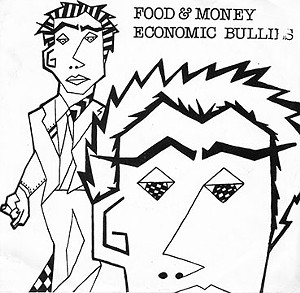
Joining the Adams brothers and Novak was drummer Danny Fafoglia, a co-worker of John’s at Appletree, to create the first incarnation of Food & Money. Soon, Pat Greenan, fresh from a gig with a legendary local band called Tonguesnatcher Revue, took over on drums, along with John Bulli on bass. When Bulli and Doug Adams dropped out as alternating bassists, Greenan contacted Jim “Tooter” Troxell, his bassist friend from jazz band days, and the main combo was set. The final ingredient was saxophonist Bill Janssen, who at the time was working with Springfield resident Adrian Belew in a band called GAGA. Within a few years, Belew would become an internationally known experimental rock guitarist on his own and through work with David Bowie, Talking Heads and an incarnation of the British prog-rock band King Crimson.
Soon, Food & Money was playing all kinds of local gigs, performing the “best stuff from the best albums” of the current crop of punk/new wave/alternative music in front of many enthusiastic crowds, and some not quite so understanding. After Greenan brought an original song to the group, other bandmates developed into songwriters, and the setlist filled with self-penned tunes. For fun they would assign song titles to each other, expecting in return completed songs for the band to perform. Most of the time crowds would “get it” and understand the “out of the box” music, especially as the alternative market of national acts became more popular. But, as frontman Dave Adams tells the story, sometimes audiences were as enthusiastic against the music as for it. The band always tried to make the best of the situation.
“Around 1981 at a band showcase in Mabel’s (a now defunct, once popular, live music venue in Champaign), for some reason, an officer from the (then) Rantoul Air Force Base decided that a new wave band would be perfect for entertaining Air Force basic trainees,” Adams explained. “Most of the trainees had never heard anything like punk/new wave and they just hated it. They were enraged and loudly booed every song. They had a great time hating and berating us.”
At the end of the night, Adams and crew egged on the crowd and encouraged the trainees to bring more friends for even more heckling the next night. And so they did. Soon the “howling trainees” formed military columns of four abreast, drunkenly marching to the beat while addressing the band with a “mass bird” salute. Adams reports that a good time was had by all. Fortunately for Food & Money, at most venues they were much better received, even though we can all imagine that those trainees may be still talking about that night as well, if they remember any of it.
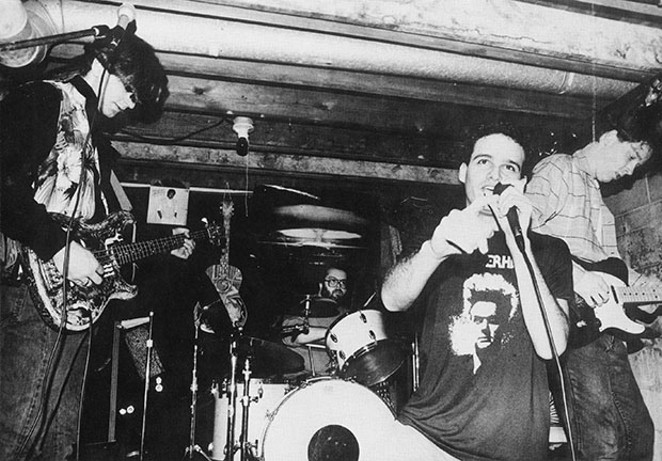
Food & Money eventually produced a 7-inch record called Economic Bullies with distinctive cover art by Mike Getz while continuing to gig at all the cool clubs in the region. They disbanded in 1982. According to Dave Adams, part of the reason had to do with his relocation to Peoria for a job, but mainly he gives the blame and credit to the central Illinois location that was “constrained by market realities that were challenging at best.”
Everyone in the band went on to play in other groups and in other areas, finding viable work in various occupations. No one from Food & Money now lives in central Illinois. An LP vinyl record and/or digital download of Food & Money songs will be available after July 6 by pre-ordering the product from Alona’s Dream, a record label that releases archival punk, garage and psychedelic rock on vinyl, CD and digital format.
Along with the Saturday show at Black Sheep bringing back the punk/new wave connection in Springfield, Food & Money also plays at the Curve Inn on Sunday, July 3, 6 to 10 p.m. They’re joined by Flock of Tooters, another local band from the 80s. Formed by and around bassist Jim “Tooter” Troxell of Food & Money, the group included many of Springfield’s top musicians at the time and had a somewhat fluid cast of characters who all seriously approached music with a whimsical air.
The Backwards Day story starts in 1987 at Memorial Medical Center where Jim Schniepp, a guitarist, singer-songwriter by night and pharmacist by day, worked with former record store employee (yes, it was Appletree Records) and avid music and media absorber Scott Faingold, who is now an Illinois Times staff writer. After Faingold joined Schniepp at an open mic night for a rousing rendition of “Sister Ray,” a blue and biting Lou Reed song, the terrified and voracious response of the crowd encouraged the two to begin composing songs. The tunes came fast and furious and soon the duo, who by now called themselves Backwards Day (a reference to the John Waters film Desperate Living), produced a full-length cassette called Conflict-of-Interest on their homespun label, Rickety-Rackety Records. Tedd Smith, a local bassist of renown, requested permission to join the ruckus and soon invited Tim “Grumpy” Harte to beat the drums, and the quartet became a full-fledged band.
From early gigs that shocked bar owners and patrons alike with aggressive stage shows, intensely smart-aleck performances and dynamic musicianship, the band soon drew a fan base that never left until the guys hit the road for Chicago a few years later. Faingold recalls a night at a venue called Fifth & Monroe (now Craft Beer Bar), when things seemed to turn around for the fledgling combo. It was a cold and icy night without much promise of a crowd. From what Faingold says, I opened up the night with a set from my fast-folk Cornucopia period, to an audience of about none. Things changed quickly, as the bar filled up and patrons entered with the sole supposition of supporting Backwards Day.
“Jim (Schniepp) and Judy (Spaith) went next door to get pizza at Gallina’s and I was running the door when suddenly it seemed like the whole town showed up,” Faingold said. “Stevhan Gobble came with 10 people, saying ‘Pay the man.’ Members of NIL8, including Jeff Williams, who ended up standing on a table, plus plenty of people we didn’t know, came.” It was like we were anointed as the new cool band. It changed us since we were used to going against the grain and now we were becoming popular.”
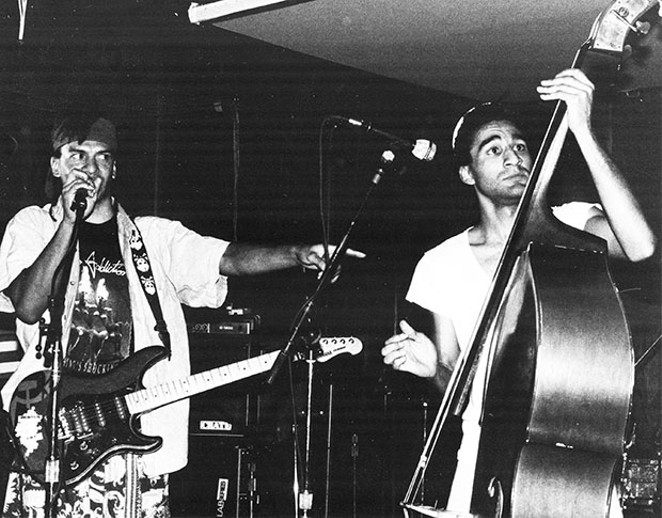
The band put out a 7-inch record, While There’s Still Time, released Springfield’s first music CD, made a cassette called Bubkes and packed clubs like On Broadway doing double bills with NIL8 and other bands. The rocket trajectory of the intrepid quartet drove them to see how far the blast would last and they relocated to Chicago in 1991, an effort to continue the momentum as far as it could go. The big dreams and anxious ambitions all sunk into the expansive morass of the Chicago music scene after the band made a good try at breaking into one of the largest and toughest markets in the nation.
When the band dissolved soon after, Tim Harte remained in Springfield and the other three mates stayed in Chicago before settling in different directions. Faingold eventually moved back to Springfield, while Schniepp remained in Chicago, working as a pharmacist, and Smith moved to Florida to do something or other. Faingold’s latest band, Epsom, recently released an LP of original songs and two weeks ago played a show at Bar None with Jeff Williams of NIL8 on the bill.
In 1999, Faingold documented adventures of Backwards Day in a thinly veiled work of fiction called Kennel Cough published by Post-Traumatic Press (out-of-print but available at private online bookstores). As things will happen, a few years ago I apparently loaned the book to Brian Galecki (he says I did), who by then was operating the Black Sheep Cafe all-ages venue and Springfield’s newest outlet for buying recorded music, Dumb Records. That’s how he learned about Backwards Day.
Galecki’s discovery of Food & Money came about a year ago and led to his understanding of how influential the band was to the punk/new wave music scene. As he perused the Springfield Illinois Music History page hosted and documented by Neireda and Bob Littrell on Facebook, he saw a video of the band performing live for a St. Louis cable access program. “It blew my mind,” was his reaction to seeing a band from Springfield, playing music 40 years ago that had such similarities to young groups currently performing around town. When he contacted Jeff Williams of NIL8 to share the information, Williams told him how Food & Money was the “first band I cared about seeing in this town.” Faingold related that while still a teenager, he convinced his parents to take him and some friends to watch Food & Money at a bar gig. He credits seeing the new wave combo as a major influence on starting his first band, Flawless Ketchup.
During all this hubbub about “discovering” a long lost local band, Galecki recalled receiving an email from “a Dave Adams” inquiring about doing a show at Black Sheep last year. When Galecki realized this was the same guy from Food & Money, he set up a show at Dumb Records last September for Dave Adams and his brother, Doug. The Saturday concert at Black Sheep Cafe, featuring four bands spanning nearly 40 years of performance time, completes a circuitous route in bringing it all back home to connect the Springfield alternative music scene.
“It’s crazy how all of these bands just overlap and plenty have shared members,” Galecki wrote me in an email. “Now it’s to where our band Livin’ Thing and Spellbreaker, the other band playing Saturday (featuring Noah, Faingold’s son, on guitar), can be traced back to Food & Money through influences and bands playing shows together in this city.”
Crazy, indeed, but quite wonderful as well, to see how punk/new wave/alternative rock music, something that began as an agent of disruption and change, brings generations of people together to perform and participate in a progression of the arts.
Tom Irwin was lead singer and songwriter in the Strand and Condition 90, staples of the mid-80s new wave scene and also managed Appletree Records for a year in the mid-1980’s. He bought a bass amp from Tooter Troxell in 1975, loaned Jeff Williams his guitar tuner in 1983, released a cassette on Rickety Rackety Records in 1988, dropped his niece off at the Asylum in 1998 and wrote about Dave Adams’ triumphant musical return to Springfield in 2015. Contact him at [email protected].

